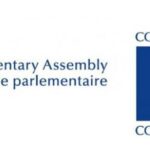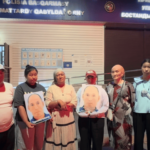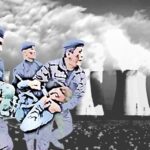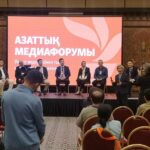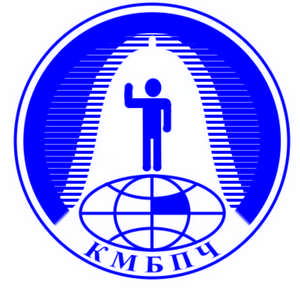Strongly denouncing the widespread acts of violence that followed the peaceful protests in Kazakhstan that began on 2 January, Parliament urges Kazakh authorities to respect human rights and fundamental freedoms and immediately release arbitrarily detained demonstrators and activists.
<RepeatBlock-By><Depute>Željana Zovko, Gheorghe‑Vlad Nistor, Michael Gahler, Rasa Juknevičienė, Andrey Kovatchev, Sandra Kalniete, Andrius Kubilius, Paulo Rangel, Jerzy Buzek, Isabel Wiseler‑Lima, Traian Băsescu, Esther de Lange, Miriam Lexmann, Sara Skyttedal, Eugen Tomac, Tomáš Zdechovský, Inese Vaidere, Krzysztof Hetman, Janina Ochojska, Stanislav Polčák, David Lega, Christian Sagartz, Antonio López‑Istúriz White, Vladimír Bilčík, Adam Jarubas, José Manuel Fernandes, Elżbieta Katarzyna Łukacijewska, Vangelis Meimarakis, Romana Tomc, Peter Pollák, Tom Vandenkendelaere, Arba Kokalari, Loránt Vincze, Jiří Pospíšil, Ivan Štefanec, Seán Kelly, Michaela Šojdrová, Luděk Niedermayer</Depute>
<Commission>{PPE}on behalf of the PPE Group</Commission>
<Depute>Pedro Marques, Andrea Cozzolino, Nacho Sánchez Amor</Depute>
<Commission>{S&D}on behalf of the S&D Group</Commission>
<Depute>Róża Thun und Hohenstein, Petras Auštrevičius, Malik Azmani, Izaskun Bilbao Barandica, Dita Charanzová, Olivier Chastel, Vlad Gheorghe, Klemen Grošelj, Bernard Guetta, Svenja Hahn, Karin Karlsbro, Karen Melchior, Javier Nart, Frédérique Ries, María Soraya Rodríguez Ramos, Michal Šimečka, Nicolae Ştefănuță, Ramona Strugariu, Dragoş Tudorache, Hilde Vautmans</Depute>
<Commission>{Renew}on behalf of the Renew Group</Commission>
<Depute>Viola Von Cramon‑Taubadel, Hannah Neumann</Depute>
<Commission>{Verts/ALE}on behalf of the Verts/ALE Group</Commission>
<Depute>Anna Fotyga, Ryszard Antoni Legutko, Adam Bielan, Alexandr Vondra, Assita Kanko, Charlie Weimers, Carlo Fidanza, Jadwiga Wiśniewska, Ladislav Ilčić, Veronika Vrecionová, Vincenzo Sofo, Witold Jan Waszczykowski, Raffaele Fitto</Depute>
<Commission>{ECR}on behalf of the ECR Group</Commission>
<Depute>Fabio Massimo Castaldo</Depute>
</RepeatBlock-By>
European Parliament resolution on the situation in Kazakhstan
(2022/2505(RSP))
The European Parliament,
– having regard to its resolution of 11 February 2021 on the human rights situation in Kazakhstan[1] and its previous resolutions on Kazakhstan of 14 March 2019[2], 18 April 2013[3], 15 March 2012[4] and 17 September 2009[5],
– having regard to the Enhanced Partnership and Cooperation Agreement (EPCA) between the European Union and its Member States, of the one part, and the Republic of Kazakhstan, of the other part, which was signed in Astana on 21 December 2015 and which entered into full force on 1 March 2020 following its ratification by all Member States,
– having regard to the 18th meeting of the EU-Kazakhstan Cooperation Council of 10 May 2021, to the 13th EU-Kazakhstan Human Rights Dialogue meeting held on 2 and 3 December 2021, and to the 18th meeting of the EU-Kazakhstan Parliamentary Cooperation Committee held on 11 October 2021,
– having regard to Articles 2, 3(5), 21, 24, 29 and 31 of the Treaty on European Union and Articles 10 and 215 of the Treaty on the Functioning of the European Union, which commit the EU and its Member States in their relations with the wider world to upholding and promoting universal human rights and the protection of individuals, and adopting restrictive measures in cases of grave human rights breaches,
– having regard to the Council conclusions of 17 June 2019 on the new EU strategy on Central Asia,
– having regard to the declaration by the Vice-President of the Commission / High Representative of the Union for Foreign Affairs and Security Policy (VP/HR) of 8 January 2022 and the statement by the European External Action Service (EEAS) spokesperson of 5 January 2022 on the latest developments in Kazakhstan,
– having regard to the statement of the UN High Commissioner for Human Rights of 6 January 2022,
– having regard to the Universal Declaration of Human Rights, the International Covenant on Civil and Political Rights, and the UN Convention against Torture,
– having regard to the UN Human Rights Council Universal Periodic Review of Kazakhstan of 12 March 2020,
– having regard to Rule 144(5) and 132(4) of its Rules of Procedure,
A. whereas on 2 January 2022 thousands of people started protesting peacefully in the city of Zhanaozen, opposing the government’s decision to lift the price cap on liquefied petroleum gas, which had led to a steep surge in prices; whereas protests rapidly spread to over 60 cities and localities, demanding genuine political change, fair elections and effective measures to tackle widespread corruption;
B. whereas the human rights situation in Kazakhstan has deteriorated in a dangerous trend during the recent protests, with protesters citing the lack of democratic representation in government decision-making processes, worsening corruption and abuses of human rights and political freedoms as underlying causes of their grievances;
C. whereas it is widely known that a similar protest took place in 2011 in the city of Zhanaozen, when a group of highly organised people resorted to violence, which was later used by the authorities to justify a violent crackdown using lethal weapons on peaceful protesters; whereas the Kazakh authorities failed to investigate the events of the 2011 Zhanaozen massacre despite calls by the European Parliament; whereas the judicial system and law enforcement authorities have not investigated these events, which calls into question the likelihood of those responsible for the current bloodshed being brought to account before a court and being punished;
D. whereas 4 and 5 January 2022 marked a turning point in events, with an escalation of violence particularly in Almaty, the country’s largest city, and the reported appearance of new actors in the protests, such as criminal gangs, marginalised groups and armed groups, who took advantage of the situation to engage in violent action such as raids, arson and looting, including of police stations and military facilities; whereas the Kazakh authorities reacted to the protests, including those that were legitimate and peaceful, with disproportionate violence; whereas the response of the security forces to peaceful protests has been very harsh, with the use of excessive, unnecessary and indiscriminate force, including lethal force, such as the extensive use of tear gas, batons, flash grenades and water cannons; whereas at least 206 cases of political persecution took place on 3 and 4 January 2022 with the aim of preventing people from participating in the peaceful demonstrations, despite the authorities’ claims that they respect the right to peaceful assembly; whereas on 5 January 2022 groups of violent protesters seized the airport and stormed official buildings such as Almaty City Hall;
E. whereas since the beginning of the protests, nearly 10 000 people have been detained throughout the country, and at least 225 people have been killed, including children, people who have not participated in protests and 19 law enforcement officers; whereas the real figures are probably higher and difficult to verify due to unreliable official information as well as disruptions of internet and mobile phone services; whereas there are continuing reports that the arrests, intimidation and torture of civil activists and ordinary people that began during the January 2022 rallies are still continuing; whereas activists Nuraliya Aitkulova, Aitbay Aliyev and at least 12 others were reportedly shot dead by law enforcement officials during protests; whereas peaceful civilians Nurbolat Seitkulov, Altynai Yetayeva and their 15-year-old daughter were shot dead by the military in Taldykorgan on 8 January 2022;
F. whereas on 4 January 2022 the Kazakh authorities imposed restrictions on mobile internet and social networks; whereas on 5 January President Kassym-Jomart Tokayev declared a nationwide state of emergency that includes a curfew, temporary restrictions on movement and a ban on mass gatherings; whereas a five-day internet blackout intended to disrupt the protesters’ communications has been reported;
G. whereas on 6 January forces from the Collective Security Treaty Organization (CSTO) were deployed in Kazakhstan on formal request to assist the Kazakh Government against protesters, marking the first time that the Russian-led military alliance has been called on to intervene in a member country;
H. whereas on 11 January 2022 President Tokayev announced the full withdrawal of CSTO forces from the country by 23 January 2022; whereas the Russian Government, citing the spread of a viral disease among livestock, imposed a ban on imports of meat and dairy products from Kazakhstan a day after President Tokayev’s January 11 announcement;
I. whereas as of 4 January 2022 the Kazakh authorities have initiated a widespread disinformation campaign, and an internet and media blockade to hide state involvement in violence against its own people and to discredit the peaceful demonstrations and genuine will of the Kazakh people to seek justice, dignity and respect for their rights;
J. whereas on 7 January 2022 President Tokayev issued a ‘shoot to kill’ order against the protesters, whom he described as international terrorists; whereas such an order violates Kazakhstan’s international legal obligations to respect and protect the right to life; whereas the Kazakh authorities have used vague and overly broad interpretations of terrorism and extremism laws and measures to arbitrarily restrict free expression and peaceful dissent; whereas on 11 January 2021 UN experts denounced the overly broad use of the word ‘terrorism’ against protesters, civil society activists, human rights defenders, journalists and political parties;
K. whereas Kazakh authorities politically persecute their opponents who have been forced to live abroad;
L. whereas national and international journalists and media outlet offices have been criticised and attacked by the Kazakh Government and state forces, with foreign correspondents being denied entry to the country; whereas law enforcement officials who were not displaying their identification fired on a TV Rain journalist, Vasilyi Polonskyi, and a photographer, Vasilyi Krestiyaninov, while they were doing their job near the morgue in Almaty; whereas a number of journalists have been detained or harassed by law enforcement officials for their coverage of protests, including Saniya Toiken, Makhambet Abzhan, Lukpan Akhmediyarov, Kassym Amanzhol, Darkhan Omirbek and others;
M. whereas the Kazakh authorities have long restricted fundamental rights, including the right to peaceful protest, freedom of association and free speech; whereas Kazakhstan is ranked 155th out of 180 countries in the Reporters Without Borders 2021 World Press Freedom Index; whereas 13 activists associated with Koshe Partiyasy and Democratic Choice of Kazakhstan (DCK), which are peaceful opposition movements, have been convicted, including the political prisoners Kairat Klyshev, Noyan Rakhimzhanov, Askhat Zheksebayev and Abai Begimbetov, who were sentenced to five years imprisonment immediately after the visit to Kazakhstan by the EU Special Representative for Human Rights and of the EU Special Representative for Central Asia; whereas their political trials were held online and no court decisions banning DCK and Koshe Partiyasy were presented in support of the charges;
N. whereas President Tokayev accused activists, human rights defenders and the free media of inciting unrest; whereas over recent years the human rights situation in Kazakhstan has sharply deteriorated; whereas several prominent human rights NGOs, media and election observation organisations in Kazakhstan have been subjected to increasing pressure and judicial harassment by the country’s authorities; whereas this is part of a larger crackdown on civil society, trade unions and fundamental democratic rights, in particular on the freedoms of expression, association and assembly, on political pluralism, the right to participation in public affairs and the rule of law;
O. whereas human rights defender Raigul Sadyrbayeva, who is in poor health, has been placed in pre-trial detention during the investigation of a politically-motivated criminal case for monitoring protests in Semey and is facing a long prison sentence; whereas human rights defender Aliya Isenova was shot in the arm by law enforcement officials while monitoring a protest in Semey and is now also reportedly facing a long prison sentence in a politically-motivated criminal case;
P. whereas despite declarations by the Ministry of Interior of Kazakhstan to the Director of the Organization for Security and Cooperation in Europe (OSCE) Office for Democratic Institutions and Human Rights (ODIHR) that there would be improvements in conditions in detention facilities and the respect for human rights, no tangible results have been achieved; whereas despite a memorandum signed by the penitentiary system of Kazakhstan and human rights defender Elena Semenova, torture and ill-treatment in detention facilities are still systematic, as is impunity for these crimes, because authorities continue to fail to credibly investigate torture allegations;
Q. whereas the authorities regularly attempt to hack the social media accounts of civil activists, human rights defenders and opposition; whereas Kazakhstan tries to censor opposition and human rights content on social media;
R. whereas the European Union and Kazakhstan have been partners since the country’s independence in 1991; whereas the European Union and Kazakhstan signed an Enhanced Partnership and Cooperation Agreement (EPCA), the first of its kind with a Central Asian partner, which took relations between the EU and Kazakhstan to a new level and represented an important milestone in more than 25 years of EU-Kazakhstan relations; whereas the EPCA, ratified by all EU Member States and the European Parliament, entered into force on 1 March 2020;
1. Deeply regrets the loss of life and strongly condemns the widespread acts of violence that erupted following peaceful protests in Kazakhstan; expresses its condolences to the victims and their families;
2. Stands together with the people of Kazakhstan, who should fully enjoy the right to organiser a peaceful rally in protest against the lack of reforms in Kazakhstan and in defence of a prosperous future for the country; strongly condemns the dramatic and continually deteriorating situation of human rights in Kazakhstan, including of freedom of expression and labour and social rights; urges the Kazakh authorities to abide by their international obligations and respect human rights and fundamental freedoms;
3. Calls on the Government of Kazakhstan to drop politically motivated charges and to put an end to all forms of arbitrary detention, reprisals and harassment against human rights defenders, activists, religious organisations, civil society organisations, trade unions, journalists and political opposition movements, and to allow people to freely express their political, religious and other views;
4. Urges the Government of Kazakhstan to immediately release arbitrarily detained demonstrators and activists; urges the authorities of Kazakhstan to immediately release and fully rehabilitate all political prisoners, including Mendygaziyev Bekizhan, Amirov Erulan, Chuprina Igor, Ginatullin Ruslan, Yelshibayev Yerzhan, Kusmankyzy Saltanat, Jussupov Baurzhan, Dauletiyarova Nataliya, Batkayev Rinat, Yeskhozin Yerbol, Kayyrbek Askar, Akhmetov Ulasbek, Zheksebayev Askhat, Klyshev Kairat, Rakhimzhanov Noyan, Begimbetov Abai and Raigul Sadyrbayeva; asks the authorities to lift the measures mandating pre-trial detention, house arrest and restrictions on liberty imposed on civil society activists;
5. Condemns the violations of fundamental freedoms and human rights committed by the Kazakh authorities against demonstrators, media workers and activists, including the indiscriminate use of lethal force by security forces; condemns President Tokayev’s inflammatory rhetoric, including his general portrayal of the protesters as ‘terrorists’, unsubstantiated and inflated claims of their numbers (allegedly around 20 000) and the threat to ‘kill them’; urges him to publicly cancel any order to shoot to kill without warning;
6. Calls on the authorities to disclose information related to arrests and casualties resulting from the protests, and to ensure that all those prosecuted have access to a lawyer and are provided with fair trials in accordance with international law;
7. Calls on the authorities of Kazakhstan to revise the law on public assemblies in order to guarantee the right to peaceful protest in line with international standards in order to allow people in Kazakhstan to participate in peaceful protests without fear of arrest or police harassment and interference and to ensure that independent media, civil society groups, political opposition groups, activists, trade unionists and human rights defenders can carry out their activities without undue government interference or fear of harassment or politically motivated prosecution; calls in this regard for a thorough reform of the justice system and, as recommended by the UN and the OSCE, the repeal of articles from the criminal code that are used for politically motivated prosecutions; calls on the authorities of Kazakhstan to overturn court decisions on peaceful Koshe Partiyasy and DCK opposition movements ;
8. Calls on the Kazakh authorities to stop the political persecution of human rights groups such as Bostandyq Kz, Qaharman, Femina Virtute, Veritas, 405, Elimay and Article 14;
9. Calls for the EU and international community to immediately initiate a proper international investigation into the crimes committed against the people of Kazakhstan during the two weeks of rallies in Kazakhstan, and among other matters to investigate disappearances, as well as the reports of torture, arbitrary detention and snipers killing or wounding peaceful protesters, among them minors, in Almaty and other towns and cities of Kazakhstan;
10. Calls on the EEAS and the Member States to use multilateral forums to monitor the human rights situation in Kazakhstan, including the UN Human Rights Council or the OSCE;
11. Calls on the Member States to take the initiative to invoke the OSCE Moscow Mechanism) in order to allow an enquiry into the facts and circumstances surrounding the deaths of protesters and law enforcement officers in Almaty in January 2022 and other allegations of human rights violations since the beginning of the peaceful protest movement throughout Kazakhstan;
12. Calls on the Kazakh authorities to invite UN special procedures and OSCE experts to undertake field visits and to fully cooperate with them, and to consider setting up a permanent working group under the OSCE’s auspices to assess whether the unrest was a result of foreign interference or internal power struggles and address their root cause;
13. Expresses concern about the unacceptable media freedom situation in the country; calls on the Government of Kazakhstan to provide independent journalists with a free and safe environment; strongly condemns the use of internet shutdowns to crush dissent and violate freedom of expression and assembly, contrary to international human rights standards; calls on the Kazakh authorities to restore unrestricted access to the internet, unblock all other forms of communication and stop meting out reprisals against those who share news independently; calls on President Tokayev to publicly recognise and fully respect the importance and role of free media in Kazakhstan;
14. Condemns the practice of torture and ill-treatment in detention facilities and urges the Kazakh authorities to guarantee citizens’ right to freedom from torture and ill-treatment, to ensure that detention conditions are in full compliance with international standards, to thoroughly investigate incidents of torture and to end impunity; calls on the Kazakh authorities to provide representatives from the National Preventive Mechanism and the Ombudsperson immediate and unimpeded access to all those detained;
15. Urges the Kazakh authorities to refrain from bringing terrorism’ charges ‘on the basis of overly broad interpretations of the term and to distinguish between peaceful protesters and those who used violence and committed crimes under international norms; reiterates its call to revise the definition of extremism to bring it into line with Kazakhstan’s international obligations; urges the Kazakh authorities to cease using Article 405 of the Kazakh Criminal Code to target perceived or actual members of banned ‘extremist’ groups, seek a review of the arbitrary court-imposed ban on peaceful political movements; commission an independent review of all convictions handed down on charges of organising or participating in a banned ‘extremist’ organisation and call on the courts to vacate all convictions imposed on people simply for alleged membership or support of a peaceful political opposition or advocacy group;
16. Demands that human rights be a priority for EU engagement with Kazakhstan; underlines that deeper political and economic relations with the EU as provided for by the EPCA must be based on shared values and correspond to active and concrete commitments by Kazakhstan to democratic reforms, stemming from its international obligations and commitments; encourages the VP/HR, EEAS and the Member States to continually call on Kazakhstan to repeal or amend all laws incompatible with international standards, and to raise human rights issues in all relevant bilateral meetings;
17. Calls on the EU Delegation and Member States’ representations to Kazakhstan to closely monitor the situation, visit and provide support to detained protesters and political prisoners, actively engage with local members of civil society by organising regular meetings without discrimination and take a role in facilitating a dialogue between the government and civil society; urges them, furthermore, to actively monitor and quickly react to ongoing human rights violations and take a public stance on such violations by providing assistance to victims of political prosecution and imprisoned activists as well as attending trials of government critics and human rights defenders and visiting places of detention; calls for the EU and its Member States to develop as a matter of urgency a comprehensive programme to support the civil society and democratic forces of Kazakhstan;
18. Calls on the EU Delegation and EU Member States’ embassies in Kazakhstan to coordinate and act swiftly to ensure the issuing of visas for at risk human rights defenders in need of temporary relocation outside Kazakhstan; calls on the EU Delegation and EU Member States’ embassies in Kazakhstan to engage with the Kazakh authorities to secure the immediate release of hundreds of political prisoners and detainees in Kazakhstan, the lifting of restrictions on liberty imposed on civil society and opposition activists, and the eradication of the torture and ill-treatment in prisons;
19. Welcomes the VP/HR’s offer of ‘assistance for a peaceful resolution of the crisis’ in his declaration of 8 January but regrets the lack of a diplomatic initiative; encourages the EEAS to invest in building capacities and to use existing potential for mediation, peaceful crisis resolu
tion and other tools, such as shuttle diplomacy, including by the VP/HR or the EU Special Representative for Central Asia;
20. Calls on the EEAS to promote consideration of the situation in Kazakhstan at the next session of UN Human Rights Council with the subsequent adoption of a resolution on the situation;
21. Calls for the authorities of Kazakhstan to comply with international standards regarding the legal framework for holding elections and to address the recommendations of the ODIHR Limited Election Observation Mission on constitutionally guaranteed fundamental freedoms, civil society participation, political pluralism, the impartiality of election administration, eligibility to vote and stand for elections, voter registration, the media and the publication of election results;
22. Calls on Kazakhstan to implement urgent reforms aiming to fight corruption and increased inequalities; calls for the EU institutions to speed up the adoption of anti-corruption legislation to target corrupt officials and their supporters in Kazakhstan on the grounds of human rights abuses and money-laundering;
23. Recalls the recently approved EU Global Human Rights Sanctions Regime, which enables the EU to target perpetrators of serious human rights abuses worldwide and, in the case of Kazakhstan, would allow for the targeting of individuals, entities and bodies involved in or associated with widespread and systematic human rights violations; calls on the Council to impose targeted sanctions on high-level Kazakh officials responsible for the serious violations committed during the protests of January 2022;
24. Notes President Tokayev’s announcement of socioeconomic and political reforms and expects the government and the authorities to follow up with their implementation in order to improve citizens’ living standards and tackle their discontent, and calls on the President to provide further clarification on the political reforms and the structure of the new ‘For the People of Kazakhstan Fund’ as soon as possible; encourages the Kazakh Government to seek cooperation with the EU, OSCE and Council of Europe in this reform process, and asks the EEAS to stand ready to provide any relevant support in this process;
25. Calls on Kazakhstan’s neighbours to refrain from all interference which could have a negative impact on Kazakh internal affairs;
26. Calls on European institutions and agencies, including the EEAS and the European Bank for Reconstruction and Development, and the World Bank to halt financing programmes in Kazakhstan until the government takes substantial and tangible efforts to improve its human rights record, including implementing all recommendations by the European Parliament, the UN and the OSCE, in a way that does not affect direct support to independent civil society, activists, human rights defenders and media;
27. Instructs its President to forward this resolution to the Council, the Commission, the Vice-President of the Commission / High Representative of the Union for Foreign Affairs and Security Policy, the EU Special Representative for Central Asia, the governments and parliaments of the Member States, and the President, Government and Parliament of Kazakhstan.
[1] Texts adopted, P9_TA(2021)0056.
[2] OJ C 23, 21.1.2021, p. 83.
[3] OJ C 45, 5.2.2016, p. 85.
[4] OJ C 251 E, 31.8.2013, p. 93.
[5] OJ C 224 E, 19.8.2010, p. 30.










